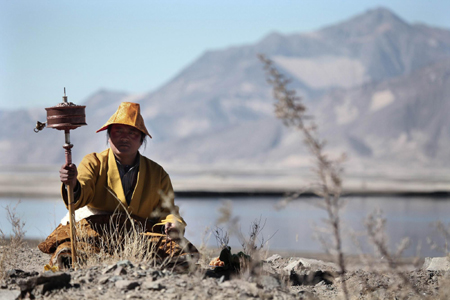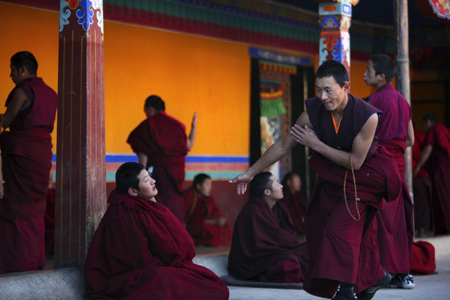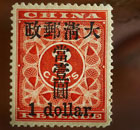Government and Policy
Destiny of Tibet 'in hands of people'
By Xie Yu (China Daily)
Updated: 2010-02-03 06:41
 |
Large Medium Small |
Asked to comment on the possibility of an upsurge in violence and terrorist activities after the death of the Dalai Lama, Zhu told reporters that he believed most Tibetans living abroad love peace, like to be in touch with their family and friends in Tibet, and be part of the region's development.
Tanzen Lhundrup, deputy director of the Institute of Social and Economic Studies affiliated to the China Tibetology Research Center, warned that it is "quite possible" that some extremist forces abroad may resort to violence or terrorism if the Tibet issue is not resolved when the Dalai Lama still has influence.
"Since he (the Dalai Lama) claims he does not seek 'Tibet independence', the Dalai Lama should put words into practice by, say, curbing such extremist forces as the 'Tibet Youth Congress'," he told China Daily yesterday.
But Tanzen Lhundrup emphasized that the central government is well prepared to deal with the post-Dalai Lama era.
Zhu said the talks between the central government and the Dalai Lama's representatives were not futile as the central government arranged trips for the envoys to visit Hunan province to better understand the country and the regional ethnic autonomy policy.
He said during the previous talks, Lodi Gyari had presented a "Memorandum from All Tibetans to Enjoy Genuine Autonomy", in which obscure words were intentionally used in an attempt to explain "Greater Tibet" and "high degree of autonomy".
 |
|
A Tibetan pilgrim spins his praying wheel as he stops to pray on the road from Shigatse to Tsedang Tibet Autonomous Region November 26, 2009. [Photo/Agencies] |
 |
|
Tibetan monks engage in religious debates inside Jokhang temple in Lhasa, Tibet Autonomous Region November 24, 2009. [Photo/Agencies] |
When the memorandum was rejected by the central government, Lodi Gyari was not pleased, saying he did not want new talks, Zhu said.
"This time, Lodi Gyari says he wants talks to continue in the future," he said.
Zhu said the improvement in relations with the Dalai Lama was China's internal affair so "outsiders have no right to voice any opinion."
But since the last round of talks in 2008, the Dalai Lama's followers continued to openly collude with separatist forces to attack the central government and the CPC, he said.
"They tried hard to destroy the stability of society in China, slandering and damaging the image of China, disturbing visits by the head of state to foreign countries and harming the sanctity of our nation's territory and sovereignty," he said. "The Dalai Lama even openly and repeatedly declared, 'No doubt, I am a son of India'."
The Dalai Lama should realize that some foreign forces which support him do not help him, but use him, he said.
"Since the armed rebellion in 1959, what did the Dalai Lama achieve except to be pushed further and further away from the journey home?"
Zhu also warned yesterday that a possible meeting between Obama and the Dalai Lama would further hurt Sino-US relations.
There has been widespread speculation that Obama will meet the Dalai Lama when he visits the United States in the coming months. The White House has not publicly confirmed any such meeting.
"If the US leader chooses to meet the Dalai Lama, that will damage trust and cooperation between our two countries, and how will that help the United States surmount the current economic crisis?" asked Zhu.
Xinhua contributed to the story







